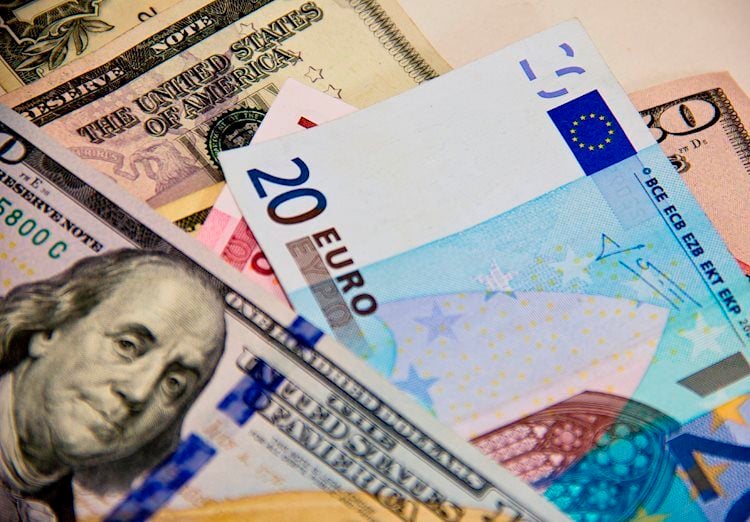
- EUR/USD is expected to witness more downside to near 1.0900 as the Fed to remain hawkish in May.
- Eurozone is prone to a credit crunch after the collapse of several US regional banks and takeover of Credit Suisse.
- The ECB is highly expected to raise rates by 25bps in its May policy meeting.
The EUR/USD pair is continuously declining for the past two trading sessions after failing to sustain above the critical resistance of 1.1050. The major currency pair is expected to extend its downside to near 1.0900 as investors are supporting the US Dollar Index (DXY) on expectations of one more rate hike announcement from the Federal Reserve (Fed).
The USD Index has shown a minor correction after printing a fresh three-day high of 102.22 as Fedfunds market is conveying that one more rate hike cannot be ruled out despite easing labor market conditions and softening United States inflation. President and CEO of the Federal Reserve Bank of Richmond Thomas Barkin said that he wants to see more evidence of inflation settling back to target.
Meanwhile, S&P500 futures have turned subdued in the Asian session after settling Monday’s session on a positive note. Market sentiment is still positive but a stock-specific action is highly observed amid the quarterly result season.
The Euro witnessed extreme selling pressure as investors are divided about the pace of hiking interest rates by the European Central Bank (ECB). Also, ECB policymaker Martins Kazaks said on Monday, the central bank has the option of 25 basis points (bps) or 50 bps move in May.
However, Bloomberg looks confident after a survey from economists, showing that a majority of them expect the European Central Bank (ECB) to hike rates by 25 basis points (bps) at its May, June, and July policy meetings before pausing its tightening cycle. “That would take the deposit rate to 3.75%, where it would stay through the rest of the year.”
Another report from Bloomberg showed that the Eurozone economy is facing the danger of a lending squeeze following the recent banking turmoil, according to the continent’s largest pension services provider.
Thijs Knaap, a chief economist at Netherlands-based APG Asset Management, said, “The risk of a credit crunch is there and it certainly increased” after the collapse of several US regional banks and the emergency takeover of Credit Suisse Group AG, reported Bloomberg.
The comments are markedly less optimistic than statements from some European Central Bank officials, who are hopeful that the 20-nation eurozone can emerge from the financial sector turbulence with little damage and continue raising interest rates.